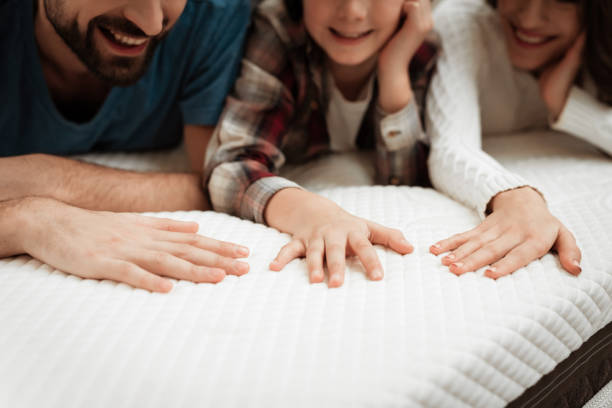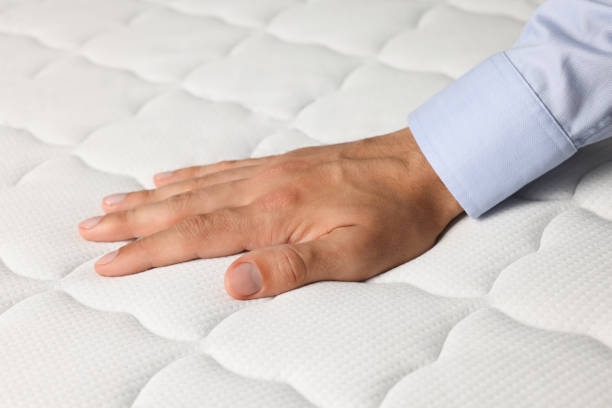Introduction

Are you looking to improve your mobility while reducing friction? Choosing the right mattress is essential for achieving optimal posture and rest and reducing pain. Whether you're a side or back sleeper, firm or soft mattresses offer unique benefits that vary depending on individual preferences. In this blog post, we'll explore the pros and cons of firm and soft mattresses, helping you decide which is best for reducing friction and improving Mobility.
Explanation of the importance of Choosing the Right Mattress to Reduce Friction and Improve Mobility
Having the right mattress is key to reducing friction and improving mobility in your sleep. A good mattress will support your body, allowing it to rest naturally. Not only can this reduce discomfort while sleeping, but it also allows you to move more easily during the night.
When selecting a mattress for better mobility and less friction, keep these factors in mind:
Firmness: When selecting a mattress, it's important to consider its level of firmness, as it can vary from extra soft to extra firm. It's recommended to avoid choosing a mattress that is too soft or too hard for your body type and preferred sleeping position. If you need more clarification, visit a mattress store and test different options.
Support: A mattress should properly support your spine and hips while you sleep. It won't provide enough cushioning to align your body correctly if it's too soft or firm. Look for a supportive mattress that is still comfortable enough to rest comfortably.
Pressure relief: The goal of a mattress is to relieve pressure from your body while you sleep, allowing for smoother movement. Ensure the mattress has enough cushioning and support to reduce discomfort or stiffness with certain positions.
Making an informed decision when choosing the right mattress for your body is essential for reducing friction and improving Mobility. Finding the right mattress can significantly impact how you feel upon waking up every morning.
Friction and Mobility
The amount of friction your mattress provides has a direct impact on mobility. Firm mattresses are easier to move on because there is less contact with the body and therefore less friction. Soft mattresses can be more difficult to move on because the base isn’t as firm, allows the body to sink in which creates more contact and more friction. Choosing the right mattress is essential to reduce friction and improve movement during sleep.
The Effects of Friction and Mobility on sleep quality

Friction and Mobility are two of the most important factors to consider when choosing a mattress. The amount of friction between your body and the bed and how easily you can move while sleeping will directly impact your sleep quality.
A mattress with too much friction may cause tossing and turning, leading to restless nights and difficulty falling asleep. On the other hand, a mattress with too little friction could cause you to sink in and make it difficult to adjust your position during the night.
Furthermore, Mobility is important for those who may suffer from chronic pain or soreness, as a mattress that enables easier movement can help reduce muscle tension and stiffness.
Factors to Consider When Choosing a Mattress
When finding the right mattress, several factors must be considered.
1. Personal preference
Everyone has different preferences regarding the firmness and comfort of their mattress. Generally speaking, a medium-firm mattress with good support is best for most people in reducing friction, improving Mobility, and providing the best sleep quality. However, depending on your sleeping needs, you may prefer a softer or firmer mattress.
2. Body weight
Your body weight is also an important factor to consider when choosing a mattress. Heavier people require firmer mattresses because they tend to sink further into softer mattresses, causing pressure points and decreased Mobility. On the other hand, lighter people may prefer softer mattresses for more cushioning and comfort.
3. Sleeping position
To select a suitable mattress, it is important to consider your sleeping position as well. Side sleepers may prefer softer mattresses to reduce the pressure on their hips and shoulders, while back and stomach sleepers usually need firmer mattresses for more support.
4. Health conditions
If you suffer from health conditions, such as back or joint pain, choosing a mattress that can help alleviate your symptoms is important. For example, if you experience chronic lower back pain, look for a firmer mattress with plenty of lumbar support.
Considering all these factors, you can make an informed decision when choosing the mattress that best meets your needs and preferences. A quality mattress can help reduce friction and improve Mobility while providing optimal comfort for a peaceful night's sleep.
Effects of Friction on sleep quality
Here are ten effects of friction on sleep quality:
1. Disrupted sleep cycle: If your mattress is uncomfortable, it can interfere with your natural sleep pattern, making it hard to sleep well at night. This can lead to fatigue and other health problems.
2. Poor circulation: A mattress that is too hard or soft can cause poor circulation, leading to numbness, tingling, and aching.
3. Lack of support: Without adequate support from your mattress, your body cannot relax properly during sleep, resulting in restlessness and unrestful nights.
4. Aches and pains: An uncomfortable or ill-fitting mattress can lead to aches and pains due to pressure points created when your body is not supported correctly.
5. Increased risk of injury: With a mattress that does not properly support the joints, you are at an increased risk of injuries due to incorrect positioning during sleep.
6. Stress and anxiety: Poor sleep from an uncomfortable or unsuitable mattress can lead to higher stress and anxiety levels.
7. Poor posture: An unsupportive mattress can cause misalignment of the spine and poor posture, leading to long-term problems.
8. Reduction in Mobility: A lack of support from your mattress can reduce Mobility and make it difficult to move around during sleep, leading to restlessness.
9. Skin irritation: A mattress that is too firm can cause skin irritation due to increased pressure on the body.
10. Allergies and respiratory problems: An uncomfortable or unsuitable mattress can contribute to allergies, asthma, and other respiratory problems.
Who should use a firm and soft mattress?

To select the perfect mattress, it's crucial to factor in your body type and preferred sleeping position. A firm or soft mattress should be chosen based on these factors. Typically, a softer mattress is preferred by side sleepers as it helps alleviate pressure points and allows their shoulders and hips to sink slightly into the surface of the mattress.
On the other hand, back sleepers tend to prefer a firmer mattress as it can help maintain the spine's natural curve while they sleep and reduce pressure points along the back. Stomach sleepers may be best served with a balance between firm and soft that provides enough support without being too hard or uncomfortable.
Firm vs. Soft Mattress: Which is Best for You?
Choosing between a firm or soft mattress is an important decision when buying a mattress. Can you suggest a method for picking the best comfort level and support from many options? Choosing from the wide range available can be challenging. The output language code is EN-US.
Firm mattresses provide a higher level of support than soft mattresses, making them ideal for people with back or neck pain. Firm beds are more durable than soft ones and require less maintenance. On the other hand, soft mattresses are generally more comfortable and can help reduce friction between body parts while you sleep, improving Mobility and reducing the risk of injury.
It's important to note that the "firmness" of a mattress can vary greatly from one brand or model to another. Each person is different, and what works for one may not work for another. Therefore, it's important to test several types of mattresses before purchasing. Consider your body type, sleeping position, and your preferred comfort level.
FAQ's
How do I know what firmness of mattress I need?
For the most accurate advice on choosing the right mattress firmness, consulting with a medical professional such as a doctor or physical therapist is recommended. They can evaluate your condition and provide personalized recommendations based on your needs.
Are firm mattresses better for posture?
Yes, firm mattresses are generally better for posture and support because they offer more resistance. This helps to align the spine and reduce pressure points from developing. It's worth mentioning that certain individuals might require a less firm mattress to properly support their body and reduce specific types of discomfort.
What happens if a mattress is too firm?
Sleeping on a very firm mattress may cause added pressure and stress on the body, which could result in more discomfort and pain. If you are experiencing a lot of discomfort, you may need to find a mattress that is better suited to your needs.
Who benefits from a softer mattress?
People with chronic pain, joint stiffness, muscle tension, or other mobility issues may find a softer mattress more beneficial. But soft mattresses increase body friction reducing ease of mobility and potentially lead to pressure points. People with back pain, arthritis, fibromyalgia, sciatica, and other medical conditions may also find relief with a softer mattress.
What age is a soft mattress for?
Soft mattresses can be beneficial for people of all ages. A soft mattress is recommended for infants and toddlers as it reduces the risk of sudden infant death syndrome (SIDS) and provides increased comfort. As we age, a softer mattress can reduce pressure points and improve comfort, allowing for a more restful night's sleep.
Conclusion
In conclusion, the type of mattress you choose should be based on your needs and preferences. Firm mattresses are generally better for posture and support, while softer mattresses can help reduce pressure points and improve Mobility. Before purchasing a mattress, it is important to test out different types of mattresses and consult a medical professional if needed. Doing so will help you find the right mattress and get a better night's sleep.

